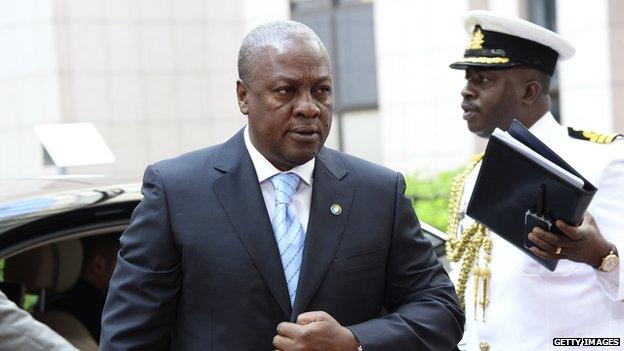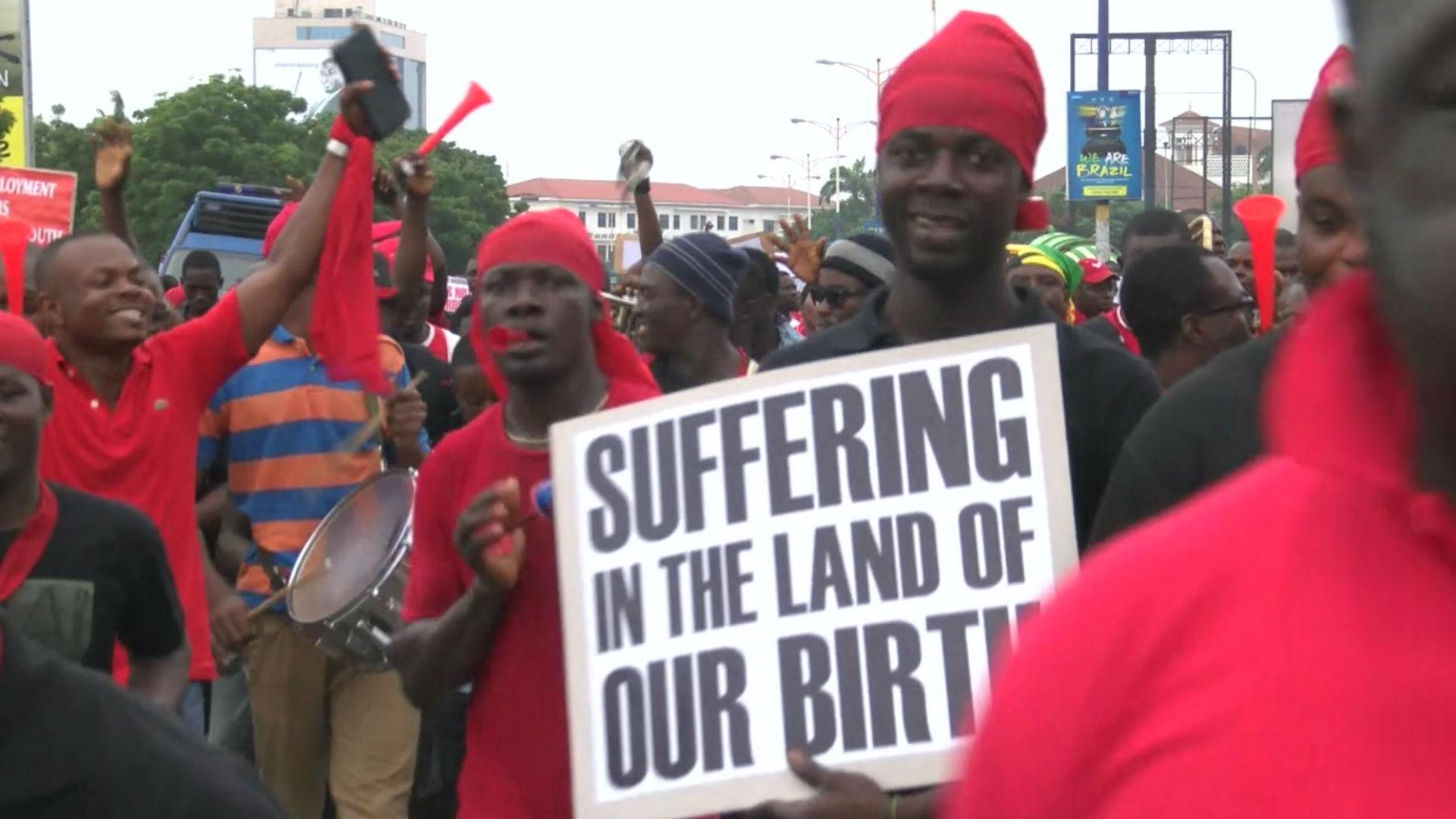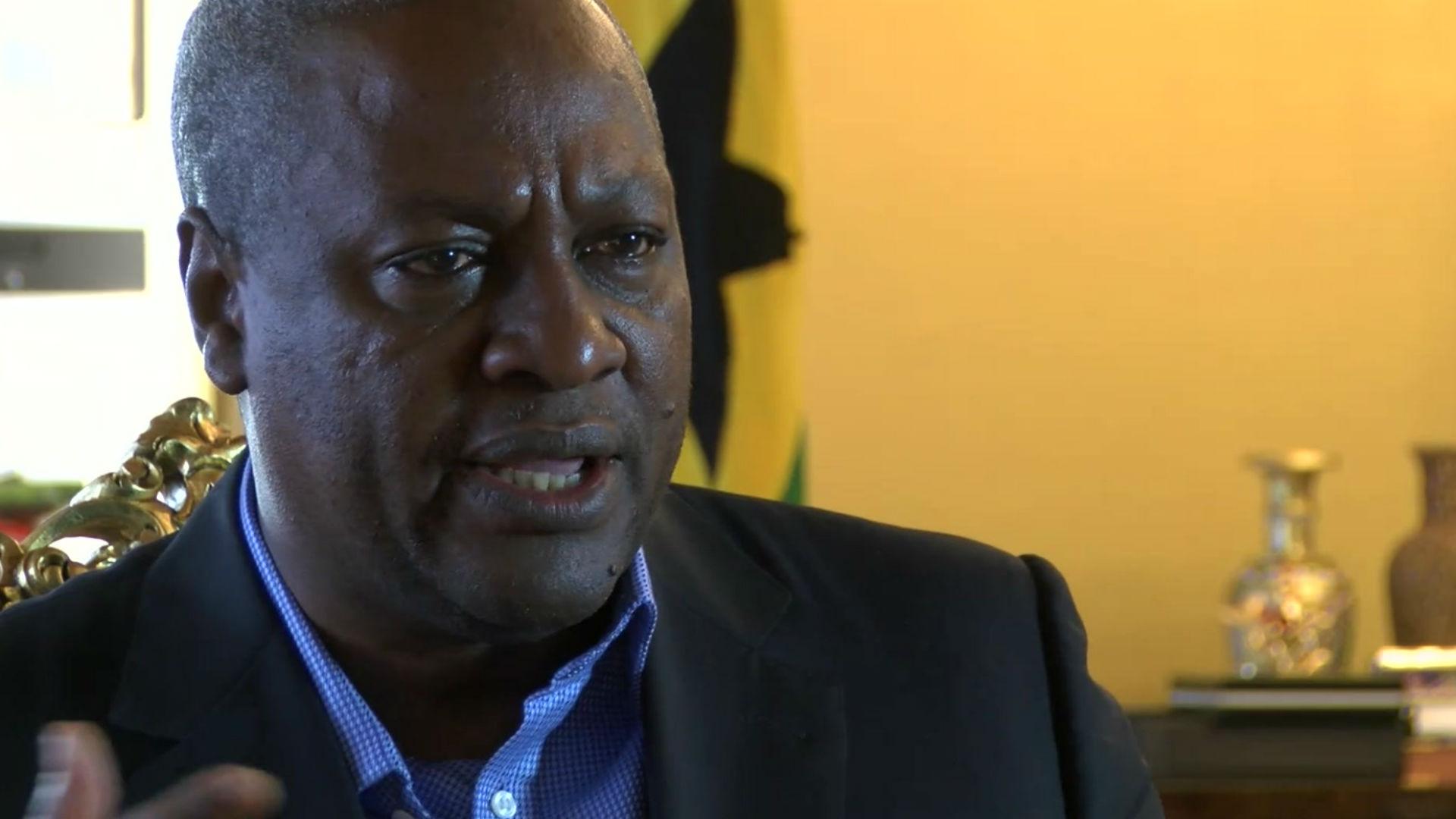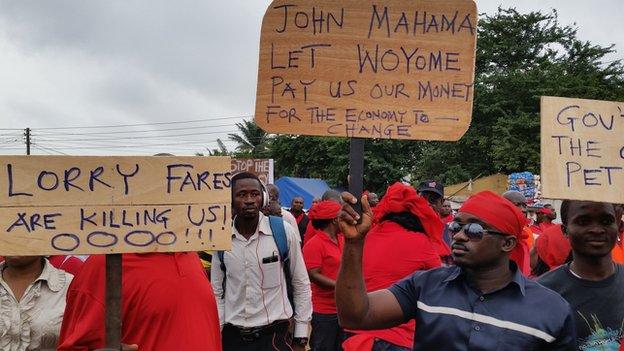Ghana to seek help from International Monetary Fund
- Published

Ghana President John Mahama has told his government to open talks with the IMF
Ghana has said it will seek financial aid from the International Monetary Fund (IMF) to help strengthen the West African nation's currency.
The cedi has fallen 40% against the US dollar this year, making it one of the world's worst-performing currencies.
Ghana, once seen as a shining example of economic strength in the region, is also struggling with high inflation.
The country last went to the IMF for help in 2009, when it secured a $600m (£360m), three-year aid package.
Despite being a major exporter of gold, oil and cocoa, Ghana is struggling with large current account and budget deficits.
Last week, the country's finance minister told the BBC the country would fix its currency problems itself and only go to the IMF as a last resort.
Many experts see the decision to go to the IMF as the first admission by the government that the economy is in bad shape.
'Meaningful difference'
Commentators said the move would force the government to take stronger action to tackle rising deficits and inflation.
"An IMF programme is likely to give to investors that additional level of confidence that fiscal consolidation might be pursued more seriously," said Razia Khan at Standard Chartered bank.
"However, news of potential talks with the IMF is unlikely to be enough, on its own, to make a meaningful difference to the cedi just yet."
Mark Asibey-Yeboah, spokesman for the opposition New Patriotic Party, said the IMF would insist on the government introducing measures to tackle inflation, including a freeze on wages.
"But all in all, the benefits will still outweigh the downside, so it's a step in the right direction," he said.
- Published1 August 2014

- Published1 August 2014

- Published24 July 2014
